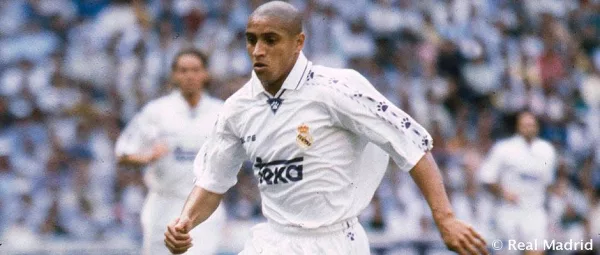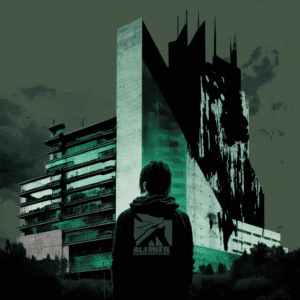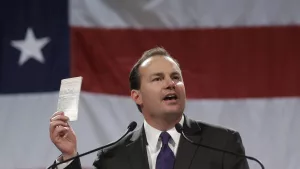Real Madrid’s bus was set to arrive at Mestalla Stadium in Valencia on May 21 for a La Liga soccer match. Valencia fans gathered where the bus was expected to pass by and chanted, but not in support of their own team. Instead, they shouted racial slurs directed at Brazilian Real Madrid forward Vinicius Jr.. During the match itself, a handful of fans in the stadium continued to yell racist comments at the same player.
In the second half of the match, Vinicius interrupted the game and angrily pointed the racists out to the referee. The event erupted on social media, some in support of Vinicius, but many minimized the issue and condemned his response. Unfortunately, this was not the first case of racial abuse that Vinicius has had to endure, nor is he the only player in Spain to have endured it.
When Roberto Carlos, a Real Madrid legend, played his first game against FC Barcelona in 1997, he faced everything from racist banners in the stands to a racial slur scratched into his car. The player spoke out about his experience, despite little public support and no consequences for the perpetrators. In fact, not even other players defended him. Pep Guardiola, then-rival with FC Barcelona and now-coach of Manchester City, responded to Carlos’s complaints by saying “That man talks too much.”

These incidents do not happen every once in a while, and they are not unique to soccer players. The little recognition racial abuse directed at La Liga players gets by the media is still greater than the attention racism receives outside of sports. From comments on the street to being denied housing, the racial injustices of Spanish society go perpetually unnoticed.
These issues were known since well before Roberto Carlos’s denouncement of racism in the 1990s, yet they continue to this day. Thus, whatever is being done to both punish and prevent racist acts, is clearly not enough. Measures including education about racial prejudice in primary schools, the criminal prosecution of racists, and sanctions on teams in stadiums need to be stronger.
Of course, Spain is not the only country tolerating racial abuse toward its soccer players. We saw this very clearly when three young, Black England players missed penalties in the 2020 World Cup final and were bombarded with racist comments on social media. Racism is still both present and tolerated in European society.
Still, it was not only the racism directed at Vinicius that was alarming, it was also the public reaction. Reporters largely condemned Vinicus’ reaction, saying that racism aside, his explosive behavior was wrong. They explained that this could happen to anyone, that it is a coincidence that Vinicius is Black, and that race is irrelevant. Politicians like Isabel Día Ayuso, President of the Community of Madrid, briefly supported Vinicius, and then immediately used the opportunity to push her own political ideology.
Although there was general support for Vinicius, it was accompanied by reassurances that the perpetrators were already punished, incredible minimization of the incident, and the condemnation of his behavior. To me, scrolling through the news articles, it seemed everyone said “Yes, racism is wrong, but…” followed by heavy criticism of Vinicius.
Only the international press seemed to support Vinicius without trying to overshadow the situation, implying that it was his own fault, or excusing the racist behavior. Even La Liga President Javier Tebas used the opportunity to tweet at Vinicius that he should “inform himself adequately” before criticizing La Liga. This, he told Vinicius, a man who has just filed his 8th racism complaint of this season alone.
As if that was not enough, only three people were arrested for racial abuse at Mestalla Stadium– the ones who Vinicius pointed out in the stadium. None of the players chanting outside the stadium before the bus arrived were even investigated. Yet, the La Liga President expects us to believe that adequate measures are being taken.
Journalists and politicians argue that Vinicius’s reaction was inappropriate even though that reaction is the only reason that authorities noticed the issue. Do they really think that if he had not reacted that way, they would have paid the same attention? Do they think that this conversation would have opened up on its own?
I am White and I have only ever lived in predominantly White countries. Still, I think this topic is crucial for me to talk about. Not because I know what racism feels like personally, but because I think it is my responsibility. People who look like me look down on people of color and refuse to rent their apartments to them. Young, innocent children face so much hatred for a concept that they barely understand, and it is inflicted upon them by people like me.
When people of color bring this topic up, we do not listen. As Guardiola did to Roberto Carlos and like the media did to Vinicius, they are silenced and blamed. The racism directed toward Vinicius is one thing. The fact that the public was more offended by a Black man being rightfully angry than by the racist comments themselves, shows us just how grave this situation really is. The negative reaction to this man’s cry for help is proof of what allows these comments to occur in the first place– a broken culture that not just allows racism, but encourages it.
No matter what he does, it is as though Vinicius cannot win. That is why I think this topic is important for me to talk about. It is not Black people’s responsibility to educate White people on humanity and empathy. If anything, it is mine, and it is our responsibility to do something about it.
Cover image by: Mateo Villalba / CNN Sports






